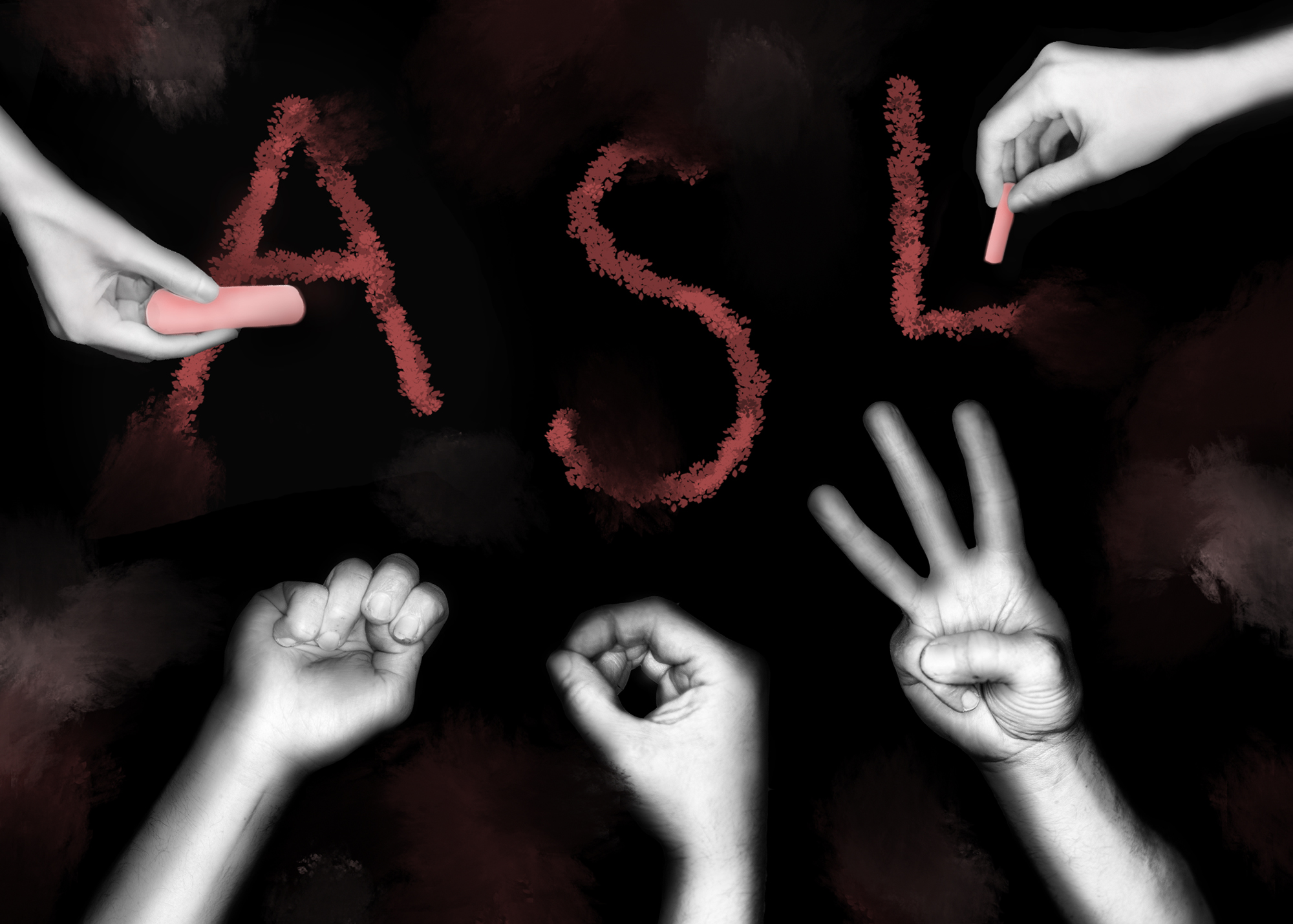Views expressed in opinion columns are the author’s own.
Not many people realize that Washington, D.C., has one of the largest populations of deaf and hard-of-hearing people in the United States. The DHH community is so large, partly thanks to Gallaudet University, the world’s only university whose programs and services cater specifically to DHH people. H Street, known for its vibrant nightlife, is a hot spot for local deaf culture. You don’t even have to drive far down Route 1 from campus to arrive at Streetcar 82, the first deaf-owned and operated brewery on the East Coast, which hosts American Sign Language classes in-house.
Despite the University of Maryland’s proximity to these cultural epicenters, the university itself doesn’t offer many ASL classes. In fact, while majors and minors are offered in 12 languages through the languages, literatures and cultures school, only beginner and intermediate level ASL courses are offered this semester through the education college. More broadly, this reflects the university’s shaky history of accommodating people with disabilities, who have had to openly challenge the university for their needs to be met.
While the university has made some strides in accessibility, implementing an ASL major or minor would be a way of showing that the university not only cares about disability access, but also prioritizes educating people about the DHH community. After all, accessibility issues are everyone’s responsibility, not just the responsibility of those who struggle to attend class or social events because of others’ failures to meet their needs.
This university’s challenges with helping people with disabilities are well-documented. Incidents of students being unable to attend class because of elevator repairs, the removal of handicap-accessible markers and a lack of wheelchair-accessible ramps have forced students with disabilities to take matters into their own hands and demand better. While the university is using this feedback to improve, the presence of these issues demonstrates a prevailing attitude that disability access is not important for those who do not live with disabilities themselves.
Everyone at the university has a right to accessibility. The lack of an ASL major or minor and the scarcity of ASL classes reflect a belief that deaf and hard-of-hearing people should fight for their right to equal access alone at every stage of their lives. Fortunately, some students and professors feel differently enough to take action. There is already a waitlist for ASL classes at the university, and over 1,000 people have signed the ASL NOW petition for an ASL major or minor. Let’s follow their lead by working to create a program that normalizes prioritizing equal access.
And, as the students of ASL NOW point out, implementing an ASL major or minor program — just like any other language program — is a cultural endeavor. It sends the message that ASL is not just a tool for DHH people to communicate; it’s also part of a vibrant cultural fabric created and adapted over the years to include a wide range of dialects and mannerisms. This intricate culture is not limited to DHH communities. It’s integral to places such as Washington, D.C., and its surrounding area, where this university has the advantage of being situated.
Ultimately, creating an ASL course of study would demonstrate the university’s commitment to diversity and to promoting a culture of accessibility that goes beyond the campus. The implementation of this program is especially important considering this university’s record of failing to prioritize the needs of students with disabilities.
Given the university’s location relative to cultural sites that are important to the DHH community, implementing an ASL major or minor would also reward students with a window into an amazing culture that few outside the community get to experience. Yet, regardless of what the university decides, the message of ASL NOW and their supporters is clear: Accessibility matters, and it’s not something we can ignore.
Caterina Ieronimo is a sophomore government and politics major. She can be reached at ieronimocaterina@gmail.com.



